The Government Office has just issued a press release on the direction and administration of the Government and the Prime Minister on April 3, 2025.
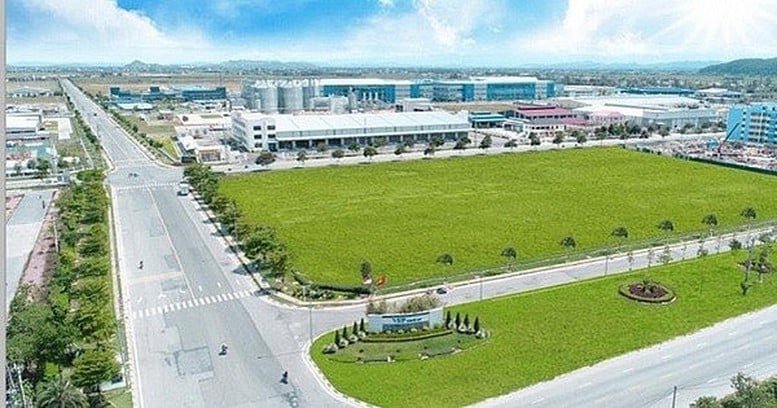
Extension of tax and land rent payment deadline in 2025
The Government has just issued Decree No. 82/2025/ND-CP dated April 2, 2025 extending the deadline for payment of value added tax, corporate income tax, personal income tax and land rent in 2025.
Subject to extension
Article 3 of Decree No. 82/2025/ND-CP specifically stipulates the subjects eligible for extension, including:
1- Enterprises, organizations, households, business households, individuals operating in the following economic sectors:
Agriculture, forestry and fisheries.
Food production and processing; weaving; garment production; leather and related products production; wood processing and production of products from wood, bamboo and rattan (except beds, wardrobes, tables and chairs); production of products from straw, thatch and plaiting materials; production of paper and paper products; production of products from rubber and plastic; production of products from other non-metallic minerals; metal production; mechanical processing; metal treatment and coating; production of electronic products, computers and optical products; production of automobiles and other motor vehicles; production of beds, wardrobes, tables and chairs.
Construction; drainage and wastewater treatment.
Publishing activities; motion picture, television programme production, sound recording and music publishing activities.
Exploitation of crude oil and natural gas (no extension for corporate income tax on crude oil, condensate, natural gas collected under agreements and contracts).
Beverage production; printing and copying of all kinds of records; production of coke, refined petroleum products; production of chemicals and chemical products; production of products from prefabricated metal (except machinery and equipment); production of motorcycles and motorbikes; repair, maintenance and installation of machinery and equipment.
2- Enterprises, organizations, households, business households, individuals operating in the following economic sectors:
Transportation and warehousing; accommodation and catering services; education and training; healthcare and social assistance activities; real estate business activities.
Labor and employment service activities; activities of travel agencies, tour businesses and support services related to promoting and organizing tours.
Creative, artistic and entertainment activities; library, archive, museum and other cultural activities; sports, entertainment and recreation activities; cinema activities.
Radio and television broadcasting activities; computer programming, consultancy services and other activities related to computers; information service activities.
Mining support services activities.
The list of economic sectors mentioned in Clause 1 and Clause 2 above is determined according to Decision No. 27/2018/QD-TTg dated July 6, 2018 of the Prime Minister on promulgating the system of economic sectors of Vietnam.
The economic sector according to Appendix I issued with Decision No. 27/2018/QD-TTg includes 5 levels and the determination of economic sectors is applied according to the following principle: In case the economic sector name mentioned in Clause 1 and Clause 2 above belongs to a level 1 sector, the economic sector to which the extension regulations are applied includes all economic sectors belonging to levels 2, 3, 4, and 5 of the level 1 sector; in case it belongs to a level 2 sector, the economic sector to which the extension regulations are applied includes all economic sectors belonging to levels 3, 4, and 5 of the level 2 sector; in case it belongs to a level 3 sector, the economic sector to which the extension regulations are applied includes all economic sectors belonging to levels 4 and 5 of the level 3 sector; in case it belongs to a level 4 sector, the economic sector to which the extension regulations are applied includes all economic sectors belonging to levels 5 of the level 4 sector.
3- Enterprises, organizations, households, business households, and individuals engaged in the production of priority supporting industrial products; key mechanical products.
Priority supporting industrial products for development are determined according to Decree No. 111/2015/ND-CP dated November 3, 2015 of the Government on supporting industrial development; key mechanical products are determined according to Decision No. 319/QD-TTg dated March 15, 2018 of the Prime Minister approving the Strategy for development of Vietnam's mechanical industry to 2025, with a vision to 2035.
4- Small and micro enterprises are determined according to the provisions of the Law on Support for Small and Medium Enterprises 2017 and Decree No. 80/2021/ND-CP dated August 26, 2021 of the Government detailing a number of articles of the Law on Support for Small and Medium Enterprises.
The economic sectors and fields of enterprises, organizations, households, business households and business individuals specified in Clauses 1, 2 and 3 above are the sectors and fields in which enterprises, organizations, households, business households and business individuals have production and business activities and generate revenue in 2024 or 2025.
Extension of deadline for payment of value added tax (except import value added tax)
a- Extend the tax payment deadline for the arising value-added tax payable (including the tax amount allocated to other provincial-level localities where the taxpayer has its head office, the tax amount payable for each occurrence) of the tax period from February to June 2025 (for cases of monthly value-added tax declaration) and the tax period of the first quarter of 2025, the second quarter of 2025 (for cases of quarterly value-added tax declaration) of enterprises and organizations specified in Article 3 of this Decree. The extension period is 6 months for the value added tax of February, March 2025 and the first quarter of 2025, the extension period is 5 months for the value added tax of April, May, June 2025 and the second quarter of 2025. The extension period is calculated from the end date of the value added tax payment deadline according to the provisions of the law on tax administration.
Enterprises and organizations that are eligible for an extension must declare and submit monthly and quarterly value-added tax declarations in accordance with current law, but have not yet paid the value-added tax payable arising on the declared value-added tax declarations. The deadline for paying monthly and quarterly value-added tax is extended as follows:
The deadline for paying value added tax for the February 2025 tax period is no later than September 20, 2025. The deadline for paying value added tax for the March 2025 tax period is no later than October 20, 2025. The deadline for paying value added tax for the April 2025 tax period is no later than October 20, 2025.
The deadline for paying value added tax for the May 2025 tax period is no later than November 20, 2025. The deadline for paying value added tax for the June 2025 tax period is no later than December 20, 2025. The deadline for paying value added tax for the first quarter of 2025 tax period is no later than October 31, 2025. The deadline for paying value added tax for the second quarter of 2025 tax period is no later than December 31, 2025.
b- In case the enterprise or organization mentioned in Article 3 of this Decree has branches or affiliated units that declare value added tax separately with the tax authority directly managing the branch or affiliated unit, the branches or affiliated units are also eligible for extension of value added tax payment. In case the branch or affiliated unit of the enterprise or organization mentioned in Clause 1, Clause 2 and Clause 3, Article 3 of this Decree does not have production and business activities in the economic sector or field eligible for extension, the branch or affiliated unit is not eligible for extension of value added tax payment.
Extension of corporate income tax payment deadline
Extension of tax payment deadline for provisional corporate income tax payments for the first and second quarters of the 2025 corporate income tax period of enterprises and organizations subject to the provisions of Article 3 of this Decree. The extension period is 5 months from the end date of the corporate income tax payment deadline according to the provisions of the law on tax administration.
In case the enterprise or organization mentioned in Article 3 of this Decree has branches or affiliated units that declare corporate income tax separately with the tax authority directly managing the branch or affiliated unit, the branches or affiliated units are also eligible for corporate income tax payment extension. In case the branch or affiliated unit of the enterprise or organization mentioned in Clause 1, Clause 2 and Clause 3 of Article 3 of this Decree does not have production and business activities in the economic sector or field eligible for extension, the branch or affiliated unit is not eligible for corporate income tax payment extension.
Extension of deadline for payment of value added tax and personal income tax for business households and individual businesses
Extend the deadline for payment of value added tax and personal income tax for the tax payable arising in 2025 of business households and individuals operating in the economic sectors and fields specified in Clause 1, Clause 2 and Clause 3, Article 3 of this Decree. Business households and individuals shall pay the tax amount extended in this Clause no later than December 31, 2025.
Extension of land rent payment deadline
Extension of the deadline for payment of land rent for 50% of the land rent arising in 2025 (the amount payable in the first period of 2025) of enterprises, organizations, households and individuals subject to Article 3 of this Decree who are directly leasing land from the State according to the Decision or Contract of the competent State agency in the form of annual land rent payment. The extension period is 6 months from May 31, 2025.
This provision applies to both enterprises, organizations, households and individuals that have many Decisions and Contracts directly leasing land from the State and have many different production and business activities including economic sectors and fields specified in Clause 1, Clause 2 and Clause 3, Article 3 of this Decree.
In case an enterprise, organization, business household, or individual business has production and business activities in many different economic sectors, including the economic sectors and fields specified in Clause 1, Clause 2, and Clause 3, Article 3 of this Decree: The enterprise or organization shall be granted an extension for the entire amount of value added tax and corporate income tax payable; the business household or individual business shall be granted an extension for the entire amount of value added tax and personal income tax payable according to the instructions in this Decree.
This Decree takes effect from the date of signing and promulgation (April 2, 2025) to December 31, 2025. After the extension period under this Decree, the deadline for paying taxes and land rents shall be implemented according to current regulations.
Extension of deadline for payment of special consumption tax on domestically produced or assembled cars
The Government issued Decree No. 81/2025/ND-CP dated April 2, 2025 extending the deadline for paying special consumption tax on domestically manufactured or assembled automobiles.
Extension of tax payment deadline for special consumption tax payable arising from the tax calculation period of February, March, April, May, June 2025
The Decree clearly states: Extension of the tax payment deadline for the amount of special consumption tax payable arising from the tax calculation period of February, March, April, May and June 2025 for domestically manufactured or assembled automobiles. The extension period is from the end of the special consumption tax payment deadline according to the provisions of the law on tax administration until November 20, 2025, specifically as follows:
a) The deadline for paying special consumption tax arising from the tax period of February 2025 is no later than November 20, 2025.
b) The deadline for paying special consumption tax arising from the tax period of March 2025 is no later than November 20, 2025.
c) The deadline for paying special consumption tax arising from the tax period of April 2025 is no later than November 20, 2025.
d) The deadline for paying special consumption tax arising from the tax period of May 2025 is no later than November 20, 2025.
d) The deadline for paying special consumption tax arising from the tax period of June 2025 is no later than November 20, 2025.
Regulations for some cases:
The Decree clearly states: In case a taxpayer makes additional declarations in the tax declaration dossier of the extended tax period, leading to an increase in the amount of special consumption tax payable and sends them to the tax authority before the extended tax payment deadline, the extended tax amount shall include the additional tax payable due to the additional declaration.
In case the taxpayer is eligible for an extension to declare and submit the Special Consumption Tax Declaration according to current law, he/she does not have to pay the amount of Special Consumption Tax payable arising on the Special Consumption Tax Declaration declared during the extended period.
In case an enterprise has branches or affiliated units that declare special consumption tax separately with the tax authority directly managing the branch or affiliated unit, the branches or affiliated units are also eligible for an extension of special consumption tax payment. In case a branch or affiliated unit of an enterprise does not have automobile manufacturing or assembly activities, the branch or affiliated unit is not eligible for an extension of special consumption tax payment.
Procedures for renewal
The Decree stipulates that taxpayers eligible for an extension must submit a Request for extension of the deadline for payment of special consumption tax (by electronic means or by sending a paper copy directly to the tax authority or by post) according to the Form in the Appendix issued with this Decree to the directly managing tax authority once for all extended periods at the same time as the time of submission of the special consumption tax declaration dossier according to the provisions of the law on tax management. In case the Request for extension of the deadline for payment of special consumption tax is not submitted at the same time as the time of submission of the special consumption tax declaration dossier, the deadline for submission of the Request for extension of the deadline for payment of special consumption tax is no later than November 20, 2025, the tax authority will still extend the deadline for payment of special consumption tax according to the provisions of Article 3 of this Decree.
Taxpayers shall self-determine and be responsible for requesting an extension to ensure that the correct subjects are eligible for an extension according to this Decree.
The tax authority is not required to notify the taxpayer of the acceptance of the extension of the deadline for payment of special consumption tax. In case, during the extension period, the tax authority has grounds to determine that the taxpayer is not eligible for the extension, the tax authority shall notify the taxpayer in writing of the termination of the extension and the taxpayer shall pay the full amount of tax and late payment within the extended period to the state budget. In case, after the extension period expires, the tax authority discovers through inspection and examination that the taxpayer is not eligible for the extension of the deadline for payment of special consumption tax according to the provisions of this Decree, the taxpayer shall pay the outstanding tax, fines and late payment as re-determined by the tax authority to the state budget.
During the period of extension of payment of special consumption tax, the tax authority shall not charge late payment fees for the extended amount of special consumption tax. In case the tax authority has charged late payment fees for special consumption tax declaration dossiers that are eligible for extension according to the provisions of this Decree, the tax authority shall make adjustments to not charge late payment fees for special consumption tax.
Decree No. 81/2025/ND-CP takes effect from April 2, 2025 to December 31, 2025. After the extension period under this Decree, the payment of special consumption tax on domestically manufactured or assembled automobiles shall be implemented in accordance with current regulations.
Announcement of the conclusion of Prime Minister Pham Minh Chinh at the working session with the Standing Committee of Vinh Phuc Provincial Party Committee
The Government Office issued Notice No. 149/TB-VPCP dated April 2, 2025, concluding the Prime Minister Pham Minh Chinh's meeting with the Standing Committee of Vinh Phuc Provincial Party Committee.
Vinh Phuc is a province located in the key economic region of the North, a gateway and bridge between the midland and mountainous provinces of the North with the capital Hanoi and the Red River Delta with many potentials and advantages for development. The Party Committee, government and people of Vinh Phuc province have made efforts, united and aspired to rise up, overcome many difficulties and challenges, been dynamic, creative, and resolutely and flexibly implemented solutions for socio-economic development. In the past 5 years (2021 - 2025 period), Vinh Phuc province has basically successfully implemented its political goals and tasks, achieving and surpassing 24/29 targets set by the Resolution of the 17th Provincial Party Congress. In 2024, the province achieved many impressive results in all fields, with 15/15 targets achieved and exceeded the plan.
As one of the six provinces and cities that no longer have temporary or dilapidated houses according to the Central Program, the province has built a very positive growth scenario, striving for a GRDP increase of 10-11% (2% higher than the Government's target of 9%).
The socio-cultural fields are focused on and developed. Social security work is well implemented, the poverty rate in 2025 is estimated at 0.3%. The quality of education is assessed to be among the leading groups in the country, medical examination and treatment has made much progress. The material and spiritual life of the people is increasingly improved, people's income is higher year after year...
The achievements of Vinh Phuc have contributed positively and effectively to the overall achievements of the whole country. However, the province still has some shortcomings, limitations, difficulties and challenges that need to be overcome such as: Economic growth is not sustainable; the province's distinct potential, outstanding opportunities and competitive advantages are very good compared to other localities, but development is not commensurate in all fields. Vinh Phuc's industry has transformed and developed rapidly but is not diversified, still depending on a number of industries such as automobile manufacturing and assembly. The proportion of the service industry in the economic structure is still low; budget revenue still mainly depends on a number of FDI enterprises. The administrative reform index (PAR INDEX), ranked 39/63 provinces and cities...
Vinh Phuc strives to be a pioneer and strongly innovate in promoting self-reliance, self-improvement and self-control.
Therefore, Prime Minister Pham Minh requested Vinh Phuc province to focus on implementing and ensuring the progress of the arrangement, streamlining of the apparatus and arrangement of administrative boundaries in the coming time according to the direction and guidance of the Central Government, so as not to affect political tasks and work. Further promote the implementation of Resolution No. 57-NQ/TW dated December 22, 2024 of the Politburo on breakthroughs in science, technology, innovation and national digital transformation through specific plans, programs, projects and proposals.
Vinh Phuc must be a pioneer, innovate more strongly and effectively in promoting self-reliance, self-reliance and self-control; develop rapidly and sustainably based on science and technology, innovation, digital transformation, green economy, circular economy, sharing economy and knowledge economy. Promote growth on the basis of maintaining macroeconomic stability, controlling inflation; protect a bright, green, clean and beautiful environment. Promote cultural traditions with strong identities, turn cultural values and endogenous strength into development resources; further promote the spirit of solidarity, unity and synchronous, close and effective coordination with ministries, branches and agencies.
The province must develop programs and plans to ensure growth targets according to the Government's targets, with high determination, great efforts, drastic actions, clear assignment of people, clear work, clear time, clear responsibility, clear products, maximizing the potential differences, outstanding opportunities, and competitive advantages. It is necessary to carry out work with the spirit of '3 yes and 2 no': '3 yes' means benefiting the country, benefiting the people, benefiting the business on the basis of "harmonious benefits, shared risks"; '2 no' means no personal motives, corruption, negativity and no loss or waste of State assets, people's assets, and the country's resources.
At the same time, continue to shift the economic structure appropriately, especially promoting the development of the service sector; renew traditional growth drivers (investment, export, consumption) and promote new growth drivers in emerging fields and industries such as semiconductors, artificial intelligence, cloud computing, the Internet of Things, exploiting new development spaces such as underground space, developing cultural industry, entertainment industry, etc.
Making Vinh Phuc a modern industrial production center of the country
The province must diversify its industries, products, markets, and supply chains to develop rapidly and sustainably, and be able to respond promptly to situations when certain industries encounter difficulties. Turn Vinh Phuc into a modern industrial production center of the country. Shift from processing and assembling to manufacturing high-tech products, increasing the value-added ratio in industrial production.
Along with that, the province must proactively develop resources for the development of transport, social, health, education, culture and sports infrastructure. Invest in developing education, training high-quality human resources, promoting the spirit of lifelong learning; focus on developing the cultural industry. Take the lead in building a health database for people, a student database, building a cultural database... Ensure progress, fairness, social security, leave no one behind, improve the material and spiritual life of the people year after year. Solve the problem of the gap between GRDP/person and average income per capita so that Vinh Phuc people can enjoy more of the fruits of economic development.
Continue to simplify administrative procedures, improve the business investment environment, improve the provincial competitiveness index (PCI), administrative reform index, people's satisfaction index, provincial governance and public administration efficiency index. Actively and proactively reduce administrative procedures (at least 30%), create favorable conditions for people and businesses, contribute to removing difficulties and obstacles, promote institutional breakthroughs. Improve the quality and efficiency of public administrative service centers according to the one-stop mechanism.
Promote resource mobilization through public-private partnership to develop transport infrastructure, logistics and key industrial projects; build models of "public leadership, private governance", "public investment, private management", "private investment, public use"... Attract domestic and foreign investment, directly and indirectly; develop the private economy as an important driving force for growth. Develop a new generation of Vietnam - Singapore Industrial Park (VSIP) including industry, urban areas, trade - services, high technology, science and technology, innovation, digital transformation... Further promote the development of social housing, strive to complete the Government's target of building 28,300 social housing units by 2030, ensuring publicity, transparency, and effective support for home buyers and renters.
Ensure national defense, security, order, and social safety, including building a strong, streamlined, efficient, effective, and modern armed defense and security force. Focus on tightening discipline, promoting decentralization, enhancing supervision, inspection, urging, and removing difficulties and obstacles; preventing corruption, waste, and negativity; strictly handling violations. Improve the effectiveness of foreign affairs work.
At the same time, focus on building a clean and strong Party organization and political system in all aspects, strictly comply with and creatively apply the Party's leadership principles and methods, improve the leadership capacity and fighting strength of Party organizations and Party members, especially constantly consolidate and promote solidarity, unity and pioneering and exemplary role of cadres and Party members, especially leaders. Actively and proactively implement Resolution No. 18-NQ/TW on streamlining the apparatus and reorganizing administrative units according to the direction of the Central Committee.
Announcement of the conclusion of Deputy Prime Minister Le Thanh Long at the working session with leaders of Hau Giang and Kien Giang provinces
The Government Office has just issued Notice No. 151/TB-VPCP on the conclusion of Deputy Prime Minister Le Thanh Long at the working session with leaders of Hau Giang and Kien Giang provinces.
Regarding the socio-economic situation in the first 3 months of 2025, Hau Giang province has focused on removing difficulties for businesses, supporting production, improving competitiveness and effectively managing business performance of economic sectors.
The socio-economic situation achieved some positive results, including: Industrial production index increased by 10.82%; industrial production value increased by 11.15%; agricultural production achieved quite comprehensive results; drought and salinity prevention and control were controlled; total retail sales of goods and services were estimated at 11,906 billion VND, up 19.79%. The province had 159 newly registered enterprises, up 15% with a total registered capital of 657 billion VND, up 37%. Total state budget revenue in the first two months of 2025 reached more than 2,700 billion VND, up 6.06%.
However, Hau Giang's economic scale is still small, mainly developing in agriculture; the results of attracting investment in the fields of clean energy, renewable energy, high technology, attracting large investors with potential and reputation willing to invest in the province are still limited; the price of many raw materials has increased dramatically, increasing the cost of project implementation.
For Kien Giang province, the production and business situation has improved, the investment and business environment has improved, the number of enterprises resuming operations has increased by 20% compared to the same period. The work of controlling and preventing drought and salinity, regulating water resources to protect and serve production has been well implemented. The industrial development index increased by 23.8%, the industrial production value is estimated at 12,407.35 billion VND, up 15.32%; aquaculture output is estimated at 49,962 tons, up 23.4%; there are no fishing vessels violating foreign waters; total retail sales of goods and service revenue increased by 15.64%; total number of tourists visiting increased by 13.7% (of which Phu Quoc city increased by 25.1%).
In addition, the province still has some difficulties and problems: Kien Giang is located at high risk of riverbank and coastal erosion, drought and saltwater intrusion. In order to achieve high growth, the locality needs to clearly identify solutions to complete the set goals. Some manufacturing industries are facing difficulties due to high input prices and slow consumption markets. Unusual weather and unseasonal rains affect agricultural and fishery production. Many projects are pending and have not been completely resolved related to land procedures, planning adjustments, etc. The Provincial Competitiveness Index (PCI) is in the bottom group.
Hau Giang builds a growth scenario higher than the target assigned by the Government
Regarding the 2025 economic growth scenario of Hau Giang province: The growth rate (GRDP) in 2024 will reach 8.76% (ranked 15th out of 63 localities). In Resolution 25/NQ-CP dated February 5, 2025, the Government assigned the economic growth target for Hau Giang in 2025 to be 8.8%. The province has built a higher growth scenario of 10.14% (in which: sector I (agriculture, forestry and fishery) increases by 3.38%, sector II (industry, construction) increases by 17.71%, sector III (services) increases by 7.84%).
Regarding public investment capital disbursement: In 2025, the Prime Minister assigned a state budget capital plan of VND 4,939,052 billion. Up to now, the Province has basically allocated all the assigned capital in detail. By the end of February 2025, the disbursed capital reached 11% compared to the capital plan assigned by the Prime Minister, higher than the national average.
Regarding social housing development: The social housing development target assigned by the Prime Minister for the period 2021 - 2030 is 1,400 apartments (of which the period 2021 - 2025 is 700 apartments). Currently, 198 apartments have been completed; the Provincial People's Committee has issued an Implementation Plan to strive to build 1,572 social housing units by 2030.
Regarding the elimination of temporary and dilapidated houses: A total of 1,475 households requested housing support (829 households were newly built and 646 households were repaired). As of March 18, 2025, the whole province had started construction of 1,068/1,475 houses, reaching a rate of 72.41%.
Regarding promoting administrative procedure reform: In 2023, Hau Giang has 3 indexes increasing in rank such as: Administrative Reform Index (PAR INDEX) ranked 19/63 localities (up 1 rank); Satisfaction Index (SIPAS) ranked 29/63 (up 4 ranks); Provincial Competitiveness Index (PCI) ranked 9/63 (up 4 ranks).
Regarding the implementation of Resolution No. 57-NQ/TW dated December 22, 2024 of the Politburo on breakthroughs in science, technology, innovation and national digital transformation: Hau Giang Provincial People's Committee issued Plan No. 17/KH-UBND dated January 24, 2025 to implement Resolution No. 03/NQ-CP dated January 9, 2025 promulgating the Government's Action Program to implement Resolution No. 57-NQ/TW of the Politburo.
Kien Giang strives for growth in region I to increase by 3.78%, region II to increase by 11.89%, and region III to increase by 10.24%.
Regarding the 2025 economic growth scenario of Kien Giang province: The growth rate (GRDP) in 2024 will reach 7.5%, higher than the national average. In Resolution 25/NQ-CP dated February 5, 2025, the Government assigned the economic growth target for 2025 to Kien Giang at 8%. The province has developed a growth scenario in which: sector I (agriculture, forestry and fishery) increases by 3.78%, sector II (industry, construction) increases by 11.89%, sector III (services) increases by 10.24%.
Regarding public investment disbursement: In 2025, the Prime Minister assigned a state budget capital plan of 8,617,498. Up to now, Kien Giang has basically allocated all the assigned capital in detail. By the end of February 2025, the disbursed capital reached 7.65% compared to the capital plan assigned by the Prime Minister, higher than the national average.
Regarding social housing development: The social housing development target assigned by the Prime Minister for the period 2021 - 2030 is 3,500 apartments, of which the period 2021 - 2025 is 1,700 apartments, of which 1,011 apartments have been completed, reaching 59.5% of the plan. It is expected that by the end of 2025, construction will start on 2,406 apartments.
Regarding the elimination of temporary and dilapidated houses: The goal by the end of 2025 is to support the construction of 2,314 new houses and the repair of 485 houses; construction of 920/2,314 new houses has been started, reaching 39.76% (completion and handover of 567 houses, reaching 31.63%), and repair of 326/485 houses has been started, reaching 67.22% (completion and handover of 90 houses, reaching 27.61%). The total cost of completion is 153.39 billion VND.
Regarding promoting administrative procedure reform: In 2023, Kien Giang has 4 indexes that have increased in rank, such as: Administrative Reform Index (PAR INDEX) ranked 40/63 localities (up 1 rank); Satisfaction Index (SIPAS) ranked 17/63 (up 7 ranks); Provincial Green Index (PGI) ranked 56/63 (up 1 rank); Public Administration Performance Index (PAPI) ranked 44/63 (up 9 ranks).
Regarding the implementation of Resolution No. 57-NQ/TW dated December 22, 2024 of the Politburo on breakthroughs in science, technology, innovation and national digital transformation: Kien Giang Provincial Party Committee issued Resolution No. 82-NQ/TU dated February 27, 2025 on the implementation of Resolution No. 57-NQ/TW; Kien Giang Provincial People's Committee issued Plan No. 36/KH-UBND dated February 14, 2025 on the implementation of Resolution No. 03/NQ-CP dated January 9, 2025 promulgating the Government's Action Program to implement Resolution No. 57-NQ/TW of the Politburo.
The Deputy Prime Minister acknowledged and highly appreciated the determination, efforts and endeavors of the Provincial Party Committees and Provincial People's Committees in implementing the Resolutions and Conclusions of the Politburo, the Secretariat, the National Assembly and the Government and achieving positive results in socio-economic development, contributing to the overall results of the whole country in the first months of 2025.
Accelerate administrative procedure reduction, improve investment and business environment
To continue to remove difficulties and obstacles, promote production and business, disburse public investment capital, build infrastructure, import and export, build social housing, eliminate temporary and dilapidated houses, national target programs, and achieve the growth target set for 2025, the Deputy Prime Minister requested the two provinces of Hau Giang and Kien Giang to focus on resolutely arranging and streamlining the organizational apparatus and arranging administrative boundaries according to the direction and guidance of the Central Government; focus on the agricultural strengths of the Mekong Delta to increase the growth rate of Region I (agriculture, forestry, fishery); specifically identify social resources, state budget, increased local revenue, productivity growth factors, and new projects to increase feasibility in implementing growth targets.
At the same time, focus on disbursing public investment capital, both to remove infrastructure bottlenecks and to accelerate the recovery and socio-economic development. Reduce administrative procedures, improve the investment and business environment, enhance competitiveness; promote the attraction of domestic and foreign investment (direct foreign investment and indirect foreign investment). Strongly develop economic sectors, including the private economy, taking the private economy as the most important driving force to promote economic growth.
Collect, classify, and review difficulties and obstacles in the implementation process of each project, thoroughly resolve pending projects, accelerate implementation progress, create resources and room for development; proactively work with ministries and agencies to promptly remove difficulties and obstacles within their authority. Research, closely follow, and update mechanisms, policies, and legal regulations to promptly make appropriate adjustments in policy development and implementation at the local level. Proactively advise and propose to ministries, central agencies, and competent authorities directions for handling inappropriate mechanisms and policies, obstacles, and limitations when implementing in practice.
Further promote the elimination of temporary and dilapidated houses. Strive to complete the Government's target of building social housing by 2030, ensuring publicity, transparency, and effective support for home buyers and renters./.
Source: https://baolangson.vn/chi-dao-dieu-hanh-cua-chinh-phu-thu-tuong-chinh-phu-ngay-03-4-2025-5043084.html


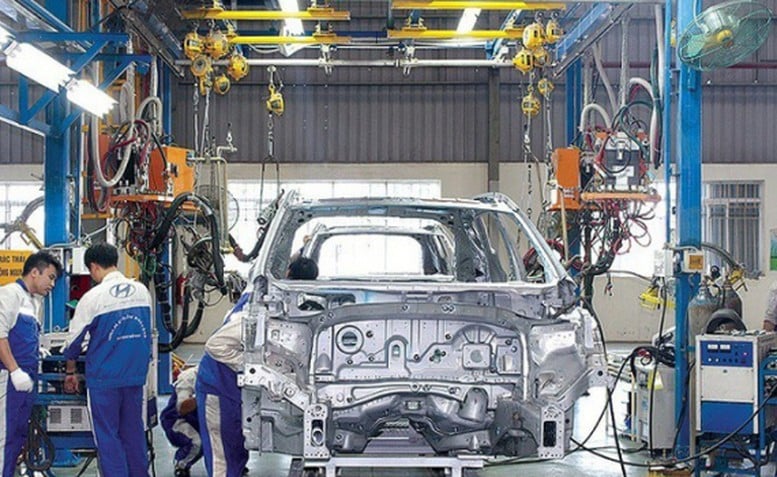
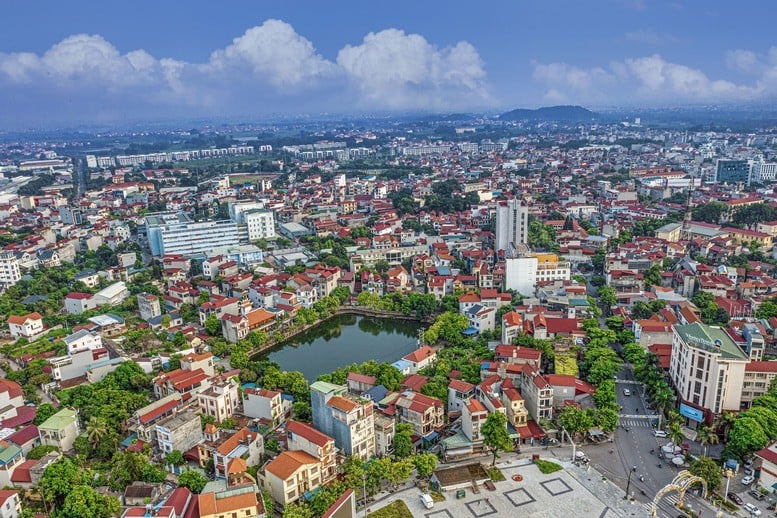
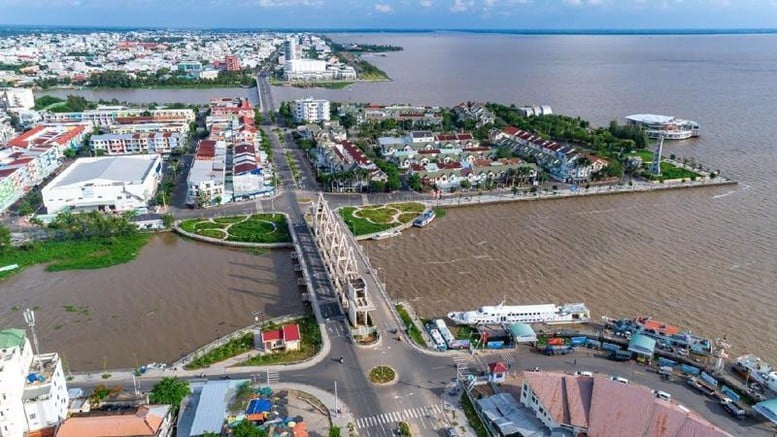
![[Photo] Ready for the top competitions of Vietnamese table tennis](https://vphoto.vietnam.vn/thumb/1200x675/vietnam/resource/IMAGE/2025/5/18/9c547c497c5a4ade8f98c8e7d44f5a41)


![[Photo] Party and State leaders attend the special art program "You are Ho Chi Minh"](https://vphoto.vietnam.vn/thumb/1200x675/vietnam/resource/IMAGE/2025/5/18/6895913f94fd4c51aa4564ab14c3f250)
![[Photo] Many young people patiently lined up under the hot sun to receive a special supplement from Nhan Dan Newspaper.](https://vphoto.vietnam.vn/thumb/1200x675/vietnam/resource/IMAGE/2025/5/18/6f19d322f9364f0ebb6fbfe9377842d3)





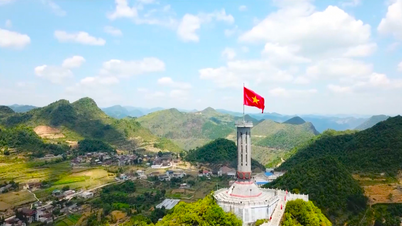
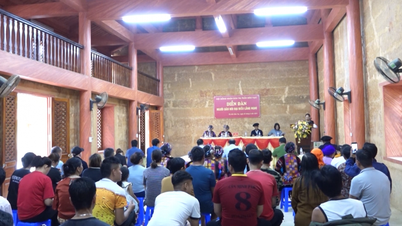
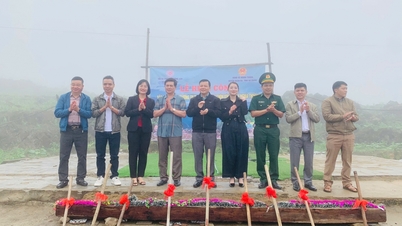
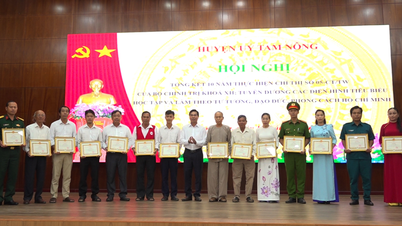
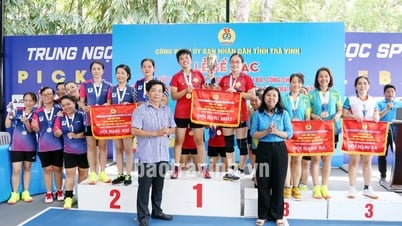
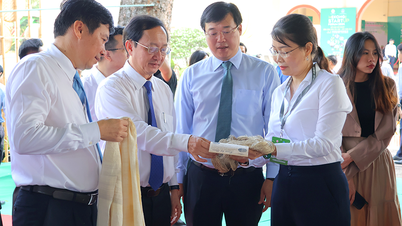
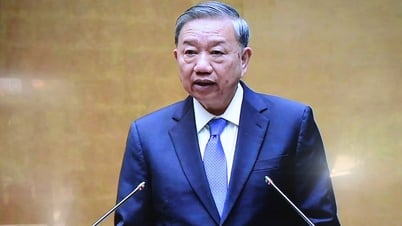
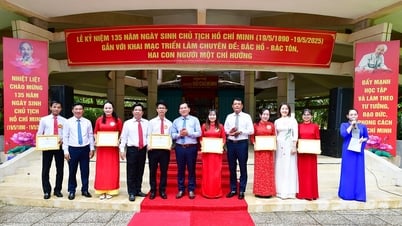







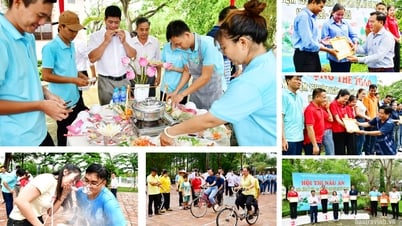
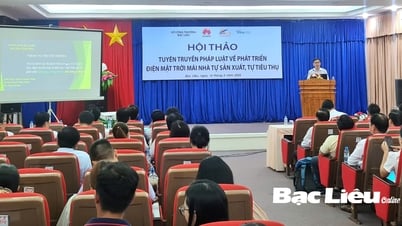

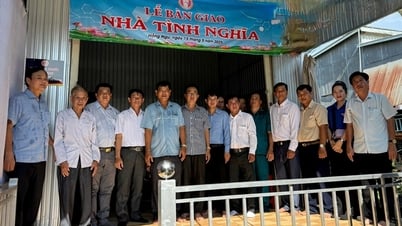















































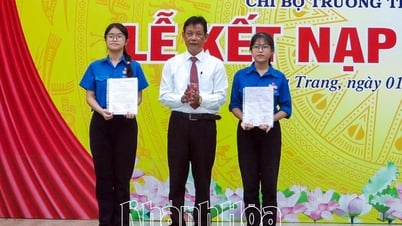

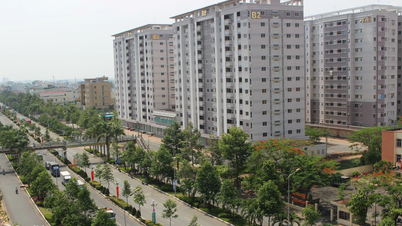

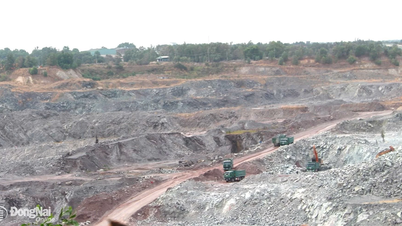
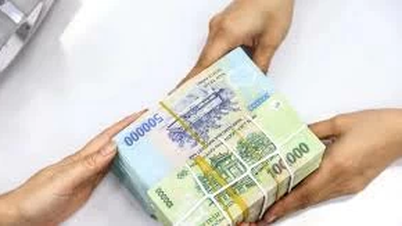
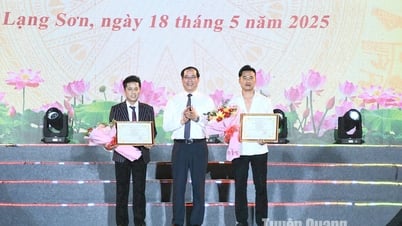












Comment (0)